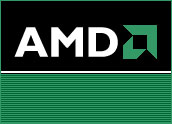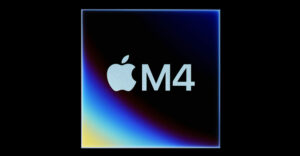
AMD announced on Tuesday that it has been awarded the Guinness World Record for computer processor speed for an overclocked version of its upcoming eight-core FX desktop processor.
This CPU hit a top speed of 8.429 GHz with the help of specialist teams, as well as a heavy dose of liquid nitrogen and helium for cooling.
The previous record speed was 8.308 GHz.
Though the record-winning overclock and cooling system is far more complex than anything a consumer would likely use in a home, FX processors also happened to achieve clock frequencies well above 5 GHz using only air- or sub-US$100 water cooling solutions, AMD said.
No benchmarking or stress testing was used for the CPU that cracked the world record.
However, that’s not important, AMD spokesperson Miriam Cox told TechNewsWorld.
“This overclocking demonstration is a way to show capability rather than what the majority of users will do with their CPU,” Cox said.
How the Award Was Won
Not every AMD FX processor is capable of the world-beating speed that broke the old record.
About a month prior to the Guinness World Record test, held Aug. 31 in Austin, Texas, AMD ran initial tests to validate the overclocking potential of the FX line and learn how the CPUs would respond to a combination of extreme cold and high-voltage overclocking, AMD senior manager Simon Solotko stated.
The processors passed the first tests, overclocking with liquid nitrogen at temperatures below -180 degrees centigrade.
The processors were also tested with liquid helium, which is even colder.
One week prior to the Guinness test, AMD experts sifted through and tested various FX CPUs to see which would perform best. Eight processors were found to be able to hit over 8 GHz when overclocked.
The Guinness world record was broken on the third of three staged runs.
Speed and the Doors of Perception
The FX desktop processor lineup will feature the world’s first eight-core desktop CPU, AMD’s Cox said.
“This fully unlocked lineup of processors was designed with gamers and HD media enthusiasts in mind, who can get a measurable frequency and performance boost with overclocking,” she added.
“Gaming is one of the most typical areas where overclocking is used,” Charles King, principal analyst at Pund-IT, told TechNewsWorld. For example, Alienware systems are configured for manual overclocking to compensate for demanding games or apps, while Intel’s Turbo Boost automatically overclocks a system when that’s required by an app or workload.
That focus on extreme gamers could pay off because they “are still one of the more lucrative areas of the market,” remarked Rob Enderle, principal analyst at the Enderle Group.
Power Without the Price
Liquid nitrogen and helium cooling systems are expensive and dangerous, and AMD warns users against employing them.
However, that doesn’t rule out the use of FX CPUs in desktops.
The ability of the FX CPU to exceed 5 GHz speeds using relatively inexpensive air and water cooling systems is “a more practical implementation” of the processors, Cox stated.
AMD will launch the processor in the fourth quarter of this year, but Cox declined to discuss pricing or technical details.
Beating Intel to the Punch?
The timing of AMD’s announcement about the FX CPUs winning the Guinness award may have been well-planned.
“I think the main thing for AMD was to issue a good press release on the first day of the Intel Developer Forum,” Pund-It’s King suggested. “The real-world impact of an overclocked performance record is somewhat limited; stealing a competitor’s groceries, on the other hand, can be quite nutritious.”
The announcement could also be a bid by AMD to indicate that it’s still a player in the semiconductor business.
“I think this is more to showcase that AMD is back in the game with full executive support, and that the days of AMD’s being subservient to Intel are over,” Enderle observed.
AMD recently seemed to back away from the high-end desktop market, which was traditionally its most lucrative business, and cede it to Intel, which “made them appear to be very weak,” Enderle explained.
“Going back into the competition looks like an effort to restore AMD as a stronger competitive alternative to Intel,” Enderle said.




















































